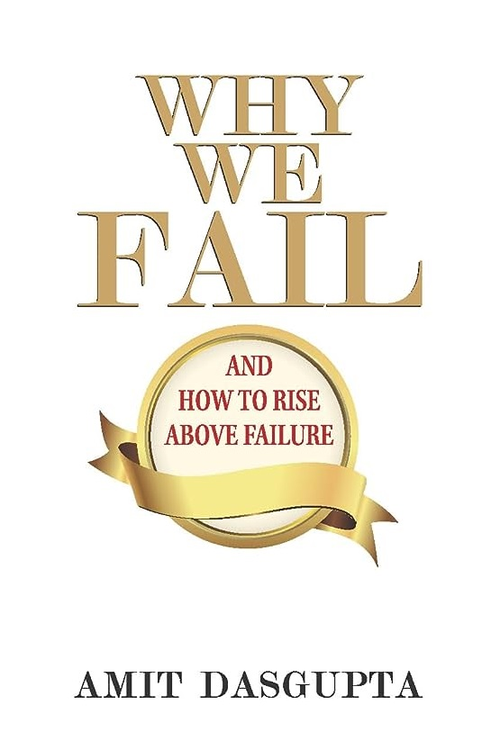But because of the vagaries of life, sometimes a decision needs to be made despite the possibility of it failing, yet it is still important to make such decisions. What should one’s attitude be in such a situation…writes Kavya Dubey
Failure is an inevitable part of life, and oftentimes surer and more impactful than success.
In his book ‘Why We Fail And How to Rise Above Failure’ (Wisdom Tree; Rs 325), former diplomat Amit Dasgupta is an empath in tough times, and a companion for the times ahead.
The fact is that our perception of success and failure is defined by what we consider as our purpose, but what matters more, according to Dasgupta, is “the ability to do what we are passionately driven by, irrespective of the outcome.”
In an email interview he added: “It reflects the essence of equanimity. You don’t pick up the cricket bat to bat like Tendulkar. You pick it up because it is where your passion lies.”
He went on to say, “Once you start placing ‘value’ on your efforts, you get overwhelmed by externally imposed perceptions of success or failure.”
Making a more stone-cold reference to what success is now understood as, Dasgupta said: “In today’s world, success is valued in terms of material gains and yardsticks of economic prosperity. Van Gogh didn’t paint in order to become a millionaire by selling his paintings. He painted because it was what drove him.
“His painting ‘Starry Night’, which is considered a masterpiece (‘success’, in other words), had disappointed him because, in his view, it didn’t capture what he had in mind. ‘Success’ and ‘failure’ are part of the scheme of things. They happen. The idea is to not get overwhelmed by either.”
But because of the vagaries of life, sometimes a decision needs to be made despite the possibility of it failing, yet it is still important to make such decisions. What should one’s attitude be in such a situation?
The author pointed out: “Nobody does anything in order to fail. When you are driven by passion, it is all that matters. You give your best. You then learn to define ‘success’ or ‘failure’ on your terms. What we often tend to do is to define these along lines other people expect of us. We start to constantly seek validation of our efforts from others.
“This translates into an externally imposed pressure, which often has terrible consequences and ends badly. As the existentialist philosopher Sartre reminded us, hell is other people.”
He concluded by adding: “Taking control of how we see ourselves and what the meaning of our life is, can be a transformational experience. And, it is well within our powers to achieve this. It is then that success and failure disappears and only action remains.”
ALSO READ-Audio books to regulate your kids screen time





